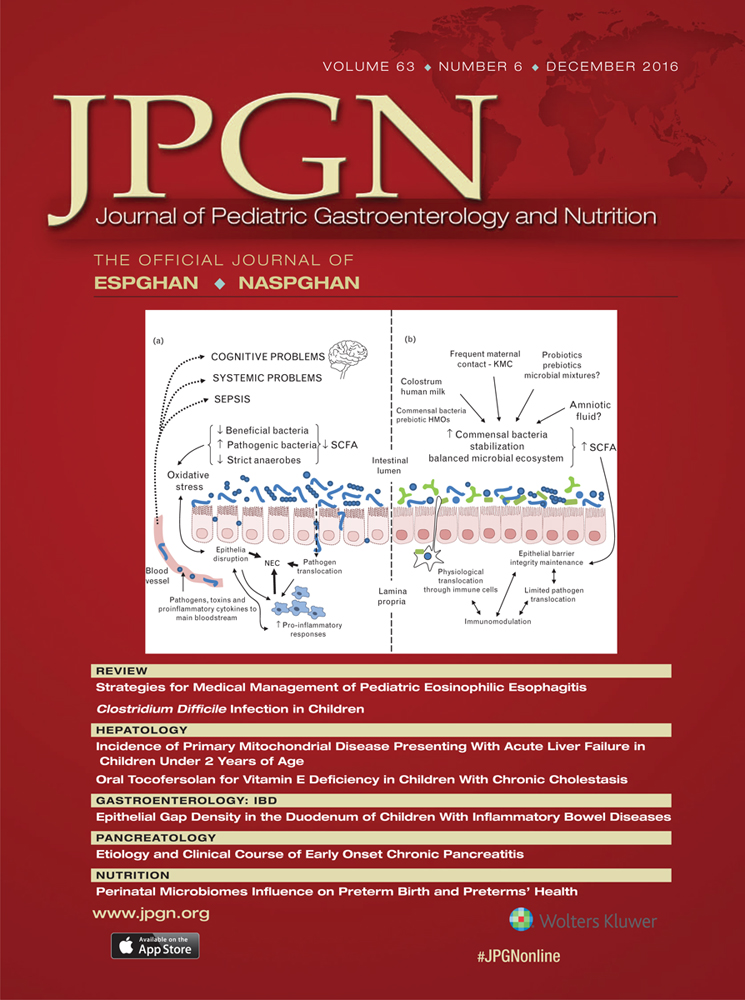Doxorubicin-Induced Gut Toxicity in Piglets Fed Bovine Milk and Colostrum
Supplemental digital content is available for this article. Direct URL citations appear in the printed text, and links to the digital files are provided in the HTML text of this article on the journal's Web site (www.jpgn.org).
Drs Shen and Rathe contributed equally to this article and share co-first authorship.
This study was supported in part by the Danish Child Cancer Foundation. Bovine colostrum was provided by Biofiber-Damino, Gesten, Denmark. Milex wholemilk powder and Lacprodan DI-9224 were provided by Arla Foods Ingredients, Aarhus, Denmark.
University of Copenhagen has filed a patent application on use of bovine colostrum for pediatric patients. P.T.S. is listed as sole inventor but has declined any share of potential revenue arising from commercial exploitation of such a patent.
The remaining authors report no conflicts of interest.
ABSTRACT
Objective:
Chemotherapy-induced intestinal toxicity is a common adverse effect of cancer treatment. We hypothesized that a milk diet containing bovine colostrum (BC) would reduce intestinal toxicity in doxorubicin-treated piglets.
Methods:
“Study 1” investigated intestinal parameters 9 days after a single dose of doxorubicin (1 × 75 mg/m2) in piglets fed bovine milk enriched with whey protein (BM). In “study 2,” responses to doxorubicin treatment were investigated in piglets receiving either 7 BC feedings per day (Only-BC, n = 13), 4 BC feedings (High-BC, n = 13), 2 BC feedings (Low-BC, n = 14), or no BC (only BM, n = 13).
Results:
Doxorubicin treatment induced clinical signs of intestinal toxicity with diarrhea and weight loss, relative to controls (P < 0.05). White blood cells, hexose absorptive function, plasma citrulline, weights of intestine, colon, and spleen were reduced, whereas gut permeability and plasma C-reactive protein levels were increased (all P < 0.05). Limited or no effects were observed for digestive enzymes, proinflammatory cytokines, or tight-junction proteins in the intestine. Increasing BC supplementation to doxorubicin-treated piglets (study 2) had no consistent effects on plasma C-reactive protein and citrulline levels, intestinal morphology, digestive enzymes, permeability, or proinflammatory cytokines. Only-BC pigs, however, had lower diarrhea severity toward the end of the experiment (P < 0.05 vs BM) and across the BC groups, intestinal toxicity was reduced (P < 0.01).
Conclusions:
Doxorubicin-treated piglets are relevant for studying chemotherapy-induced gut toxicity. Colostrum supplementation had limited effects on doxorubicin-induced toxicity in milk-fed piglets suggesting that colostrum and a bovine milk diet enriched with whey protein provided similar protection of the developing intestine from chemotherapy-induced toxicity.




